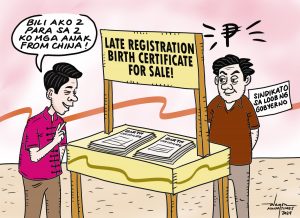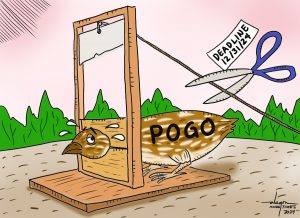On the 1st Philippine Media Safety Summit commemorating World Press Freedom Day on May 3, 2024, journalists, media workers, educators, human rights, and press freedom advocates from Mindanao, Visayas, Luzon, and Metro Manila affirm that:
A democratic society is best served by independent and critical media that can help citizens make sense of events happening around them and become critical thinkers. Better journalism, alongside more responsive and democratic political and social institutions, builds a better society.
Journalists perform their jobs effectively under conditions of freedom or the observance of free expression, trust in journalism, economic sustainability, diversity, gender equality, and inclusivity.
Freedom of the press and freedom of expression in the Philippines are fundamental rights and constitutionally guaranteed.
We likewise condemn
The continuing killings of journalists and the lack of resolution of cases; and
The deliberate targeting of journalists and media organizations.
We also reaffirm
The Philippine Plan of Action on the Safety of Journalists (PPASJ) that promotes the safety and protection of journalists, and provides a multi-stakeholder framework and platform to coordinate efforts to:
Strengthen journalists’ professional competencies to increase the public’s trust in media;
Improve working conditions in media;
Strengthen legal and social structures and mechanisms to deal with various forms of harassment, threats, and attacks on journalists;
Counter impunity by helping multi-stakeholder efforts to strengthen the courts and the methods of criminal investigation and prosecution; and
Increase public awareness and knowledge about the role of media in society through public information, citizen-media engagement, and research.
The PPASJ has provided guidelines in support of the above five flagship goals. However, there is a need for these goals to be fleshed out by journalists and media organizations, academic institutions, human rights advocates, and other sectors to highlight the following:
That the government should perform its Constitutional mandate and duty to stop the killings and all forms of violence against citizens including mainstream and campus journalists and media workers, and to properly investigate crimes committed against them, including “red-tagging”, trolling, and other forms of online hate and violence. The government should work for the immediate release of journalists wrongfully charged and imprisoned without cause.
That media owners should recognize the rights of journalists and staff to form associations and unions; provide fair and decent living wages, and an inclusive and gender-fair environment and safe workplaces, allowing journalists and staff to work without external pressure. While these workplaces are adapted to the latest technology, such as AI, their business models should not allow the deskilling, marginalization, and displacement of journalists.
That media organizations should support journalists to perform their roles effectively, and provide legal and psycho-social support especially if they are terminated, threatened, or killed.
That newsrooms and media organizations should provide the necessary skills, materials, training, and other resources to journalists, especially those going to hostile coverages, to ensure their safety and protection in the line of duty.
That journalists and media organizations should perform their work to the highest standards of their craft and provide to the best of their ability balanced and accurate reportage of events. They should hold themselves accountable to whatever they release to the public and encourage feedback and corrections of their lapses.
That media organizations and journalist associations should extend support to colleagues by coming up with mechanisms to publish or broadcast stories and images which are otherwise suppressed for reasons of safety, self-censorship, and lack of support, by releasing them in their news organizations and other independent platforms, and in collaboration with other journalists and media outlets in the spirit of solidarity.
That small and micro media organizations should be given support to sustain their operations and ensure their longevity by linking them with funding institutions and non-profit groups that invest on communication and media projects based in communities. Support should also include intergenerational exchanges of views and sharing of skills to ensure the survival of hyperlocal media organizations that answer the informational needs of the community.
That media organizations should explore diverse business models, various revenue streams, narrative techniques for local stories, distribution and marketing channels, and financial strategies including training services, monetizing the content, images, and archives, without sacrificing ethics, truthfulness, and other journalistic values.
That media organizations and journalists should engage with policy makers and legislators in relation to laws concerning security and welfare issues of journalists and media workers, including the repeal of the Anti-Terror Law and Cyber Laws which became the basis for cyberlibel, “red-tagging” of journalists, surveillance and profiling of journalists, and capturing their digital footprints to be turned against them.
That the role of multi-platform audio content coming from legacy radio, fringe internet radio and podcast producers should be revisited as a strategy of connecting with communities through streaming.
That there should be dialogue between media groups and funders on how to rationalize fund use through capacity building so that journalists can focus on writing their stories and not be tied down by drawn-out financial procedures.
In conclusion,
The delegates of the 1st Philippine Media Safety Summit further affirm and agree to follow up and implement the actions herein stated including the post-summit roadshow events to popularize the Philippine Plan of Action on the Safety of Journalists, in partnership with other organizations or individually.


